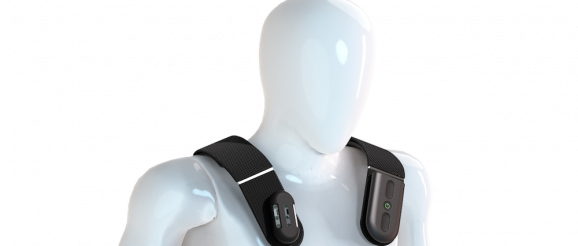AI co-pilot for blind and visually impaired demonstrated at CES – Med-Tech Innovation

Swiss-start-up biped demonstrated its AI-co-pilot for blind and visually impaired people at CES2022.
Comprising a collar fitted with 3D cameras, biped continuously monitors a 170° field of view for the user detecting, tracking, and predicting the trajectories of all surrounding elements a few seconds in advance. It then filters the relevant information and warns the wearer via immersive 3D sounds.
CEO and co-founder, Mael Fabien, who drew on his own research background this area, said: “This mirrors the way autonomous vehicles work. biped will, for example, warn a user about a bike 12 metres ahead on the user’s trajectory, but ignore an object that is closer but with no collision risk.”
biped was formed in January 2021 after Mael met his co-founder and CTO Bruno Vollmer at the International Create Challenge hackathon in Switzerland.
Fabien added: “I was both inspired by my research and by working next to the main ophthalmic hospital in Lausanne. Every day I would encounter blind and visually impaired people and wondered if we could go beyond sticks and guide-dogs to help them.”
Further research revealed that only 5% of the estimated 5 million fully blind people in Europe and the US would take up the option of a guide-dog. Furthermore, the biped team also discovered that younger people are interested in solutions that are less stigmatising than a stick.
“We have therefore worked extensively with trialists on the user-friendliness of biped and the model being shown at CES incorporates their feedback. The collar weighs under 1kg and can be worn over any thickness of clothing – from t-shirts to parkas – and has no clips or special fastenings. It also looks like a rucksack strap rather than a medical device. The signals are transmitted through comfortable bone conduction earphones and the system can also connect to mobile apps to use GPS.”
biped recently closed a $1.1 million seed round from Swiss and French business angels and a Swiss VC and is now filing for Class I medical device status.
“Our aim is to launch first in Switzerland in Q2 and then the US in early 2023. Sales will be either direct or by monthly subscription. We also see an opportunity for campuses and large companies to loan bipeds to visitors. Overall, we hope to make a major difference to the quality of life for blind and visually impaired people worldwide,” concludes Fabien.
